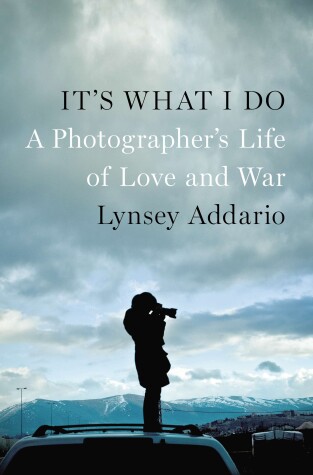
Heather
I wasn't sure why this book wasn't sitting well with me as I read it until I came across this quote close to the end:
"Journalism is a selfish profession."
That's the issue I had with this book. Throughout most of it I felt like the author had little to no empathy for the people whose lives she was invading. She was there to document their suffering and to get the best picture. She talks a lot about how stressful her job was and I'm sure it was but she also talks about how she made sure that she would leave combat zones and go on vacation regularly for her mental health. That's a luxury that the people she was covering never had. That disconnect is never discussed.
There is a time when she is embedded with another reporter in Afghanistan with the U.S. Army. They are both hiding the fact that the other reporter is pregnant, with no regard for how this increases the danger for the people who are in charge of them.
"For the first few weeks Elizabeth didn't seem hindered by pregnancy, aside from the fact that she had to stop to pee several times during the course of each patrol. After years of trying to get soldiers to overlook our gender on embeds, I cringed each time we had to ask the platoon leader, Lieutenent Matt Piosa, to hold up an entire string of troops in unfriendly villages while Elizabeth scampered off into an abandoned house or behind a tree to empty her bladder." Emphasis mine
Then she has a fit because her troops aren't willing to escort her across a hostile valley during an engagement so she can photograph dead villagers.
"Afghans dying was an enormous part of that reality, and I was just failing to witness it."
Eventually a favorite soldier of hers is killed during this embed and she decides that she's had enough.
"Kearney? Is there any way to get me out of here?" I cringed as I asked him to also deal with me: a freaked-out girl who was pleading to be extracted from the middle of a hostile ridgeline, where every Black Hawk flight in risked getting shot down by an insurgent on the mountain."
I bet all those soldiers would have loved to get out too. I bet the helicopter pilots had nothing better to do than to risk their lives to go get a freaked out journalist.
After years of work in conflict zones, she starts to develop some empathy but only after she has a bad experience with Israeli border guards taunting her over her fears about going through a body scanner when pregnant.
"I was confused, appalled, and angry until I suddenly had a moment of clarity: If the Israeli soldiers were doing this to me, a New York Times journalist accredited by the Israeli government itself, who had called the press officer in advance to graciously ask to be manually searched, how on earth did they treat a poor, Palestinian pregnant woman? Or a nonpregnant Palestinian woman? Or a Palestinian man? The thought terrified me."
Talk about needing to be aware of your own privilege. If they harass ME, maybe they are even meaner to someone else? What a novel idea. That's the kind of insular thinking I'd expect from someone who has never traveled before, not a journalist with decades of experience in many countries.
I did appreciate the fact that she talked about the fact that she thought her career would be over if she had children. She didn't want to get pregnant. She talks about her husband pressuring her. She was very unhappy when she gave in and got pregnant. Eventually she liked the kid after he was born but I'm glad she voiced the sort-of taboo thinking that not everyone is a gleeful pregnant person.This review was originally posted on Based On A True Story

